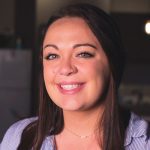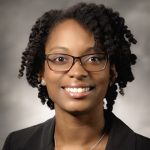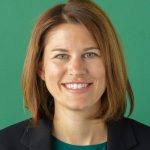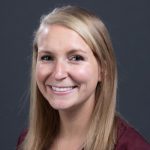Entirely focused on content strategy and digital content processes in higher education, the 2022 Higher Ed Content Online Conference will take place in April 2022.
This online conference is the Spring event for higher ed professionals and teams who want to help their school create better content across digital channels (social media, mobile, web, email, etc.)
It will feature a dozen of 10-minute sessions presented by higher ed professionals working in institutions like yours — with real content solutions to real higher ed problems.
2020 Higher Ed Content Conference Program
This online conference, offers 12 focused sessions of 10 minutes each and a general session Q&A at the end. You will also have 2 built-in breaks of 15 minutes each after the 1st and 2nd hours of the event – to keep attention levels high throughout the 4 hours (and get coffee or grab a quick lunch ;-)).
10 Minutes to TikTok
Andrew Cassel, Social Strategist and Content Producer – Middlebury College
Not sure if TikTok is the next big thing for higher ed social media? You’re not alone, because the jury is still out. Yet, it’s a good idea to learn what makes this new social media platform tick and your higher ed colleagues talk. In this session, Andrew Cassel will give us an overview on how it works and what you can do with it. You’ll also learn what could make it a powerful tool for higher ed storytelling and content marketing.
Indiana University takes on TikTok
Morgan Campbell, Social Media Specialist – Indiana University Bloomington
TikTok has reached the point where we can’t pretend anymore it doesn’t exist. While the platform is still the playground of early adopters, more and more schools wonder if they need to start tiktok-ing. In this session, Morgan Campbell will share why and how Indiana University chose to be on TikTok. You’ll learn what worked and what didn’t, why it took 8 months to gain momentum and how to convince your leadership it might be worth it for your school too.
A Week at the G: Expanding the participation and value of “Day in the Life” projects
Morgan Glover, Associate Director, Social Media Strategies – UNC Greensboro
Inspired by the University of Vermont’s “Day in the Life” initiative, UNC Greensboro launched its inaugural week-long photo/video documentary project in the spring of 2019. In this session, Morgan Glover will explain why and how her team conducted such an ambitious project on the heels of a brand refresh, leveraging the momentum of that campaign to capture unique content, rally the campus community, and close out the academic year on a high note. You’ll also learn the top lessons gleaned from 2 activations of this visual documentary project.
Showing the ROI of Storytelling
Jeff Bunch, Web Content Strategist – Gonzaga University
While we’ve all heard that storytelling has become key to higher ed communication and marketing, developing and publishing compelling stories come at a price. In this session, Jeff Bunch will explain how a sound measurement strategy can lead to higher ed content that delivers its promise. You’ll also see how a 5-step approach can help you conceive, strategize, implement, measure and refine your multichannel strategy — while showing the ROI of storytelling!
Content for the Ride: Mapping the Journey with an Omni Channel Approach
Holly Hill, Director of Digital Strategy – Flagler College
Higher education should be the trip of a lifetime. When your school wants to move its audiences in the right direction and the right emotion, your content needs to go the distance. In this session, Holly Hill will explain why and how an omni channel approach can help you create content that works across channels. You’ll also learn how to use journey mapping to create content without overstretching your team.
Generating Content Ideas Your Admission Team Will Love
Allison Turcio, Director of Digital Strategy – Siena College
Content is key to reach, engage and attract the right prospective students for your institution. While you can rely on industry research (or guess?) the type of content that will deliver, there’s a better and easier way. In this session, Allison Turcio will explain why and how to team up with your admissions office to discover topics that prospective students want. You’ll also learn a few tips to get this content in front of the right audience at the right time in the admissions cycle.
Shifting to a Story-First Approach for Higher Ed Content
Kait Lanthier, Director, Content Strategy – Babson College
Great content strategies in higher education focus on stories, not channels. In this session, Kait Lanthier will highlight why and how Babson shifted to a story-first approach to build engaging on-brand content and share it widely. You’ll learn how to build your own higher ed content engine to source and select your stories, follow an agile process and empower your campus partners.
Social Media from Afar
A J Lopez III, Manager, Digital Marketing & Social Media – Midwestern State University
Running social media from campus isn’t always easy. But, when you have to do it from another location or country, it can become a real challenge. In this session, AJ Lopez III will show you how to plan and execute a social media strategy for study abroad programs — or any initiatives off-campus. You’ll also learn how students can help you create engaging content that will leave their peers asking how they can be a part of your next study abroad program.
Why interviews will make your content better — and how to do them
Jenna Spinelle, Communications Specialist – Penn State McCourtney Institute for Democracy
Whether it’s a press release, feature story, or social media campaign, it’s tempting to rely on email to gather quotes.They might look perfect to the stakeholder, but leave the reader wondering if there’s a real person behind the words. Nothing can replace the connection and spontaneity of an interview to spark interest and engagement in higher ed content. In this session, Jenna Spinelle will teach you how interviews can change this game. You’ll learn best practices to conduct interview like a pro — even by asking (what you think are) dumb questions.
People-First Content: How York University Humanized the Institution with a Campaign
Jason Miller, Digital Specialist – York University
In higher education strong, engaging brands are made of people. That’s why campaigns inspired by Humans of New York viral social media posts have been such a great way to show and live the brand. In this session, Jason Miller will explain why and how such a campaign, #PeopleofYU, helped York University showcase the diversity of its community for 2 years in a row. You’ll also learn how to create a similar campaign at your institution and ways to keep it fresh to avoid audience fatigue.
Talking History: Maintain and Innovate the Historic Voice of Your Institution
Janice Cheng-McConnell, Admissions Communications Manager – Wells College
Whether it was established pre-Civil War or during the Flower Power movement, your institution has history. How can you give your school a fresh voice to engage students without confusing your alumni community and other stakeholders? In this session, Janice Cheng-McConnell will explain how to hone your voice to be on-brand and emotionally compelling. You’ll also gain tips on how to keep your institutional voice relevant to multimedia audiences — regardless of the age of your institution.
How to Amplify and Maintain Visibility for Faculty Research
Molly Gluck, Digital Communications and Public Relations Associate – Boston University
Faculty research is an intrinsic part of the mission of most higher ed institutions. Yet, it often remains challenging to share widely, especially over time. With this case study, Molly Gluck will give a crash course on how to effectively use social media, content platforms and media relations to educate the public and key influencers about faculty expertise and cutting-edge research. Specifically, you will learn how to use Reddit, Medium, paid and organic social media strategies to help amplify your faculty research and expertise.
Higher Ed Content Conference Faculty

Andrew Cassel has been creating and curating social media content for higher ed since 2011. Cassel presents regularly about social media content best practices around the USA including for the Alaska Democrats, Perseverance Theatre, as part of the Transportation Communicators webinar series, at the American Geophysical Union 2018 annual fall meeting, HigherEd Experts 2018 and 2019 Higher Ed Content conferences, the 2019 eduWeb Digital Summit as well as full sessions at the 2017, 2018 and 2019 Higher Ed Web annual conferences. Cassel was a awarded a best in track Red Stapler at the 2017 High Ed Web annual conference and is a five-time winner of Aurora Awards of Excellence from the Public Relations Society of America – Alaska including the 2018 Grand Award of Excellence. Cassel is currently the Social Strategist and Content Producer at Middlebury College

Morgan Campbell has been a social media specialist for Indiana University Bloomington since fall 2018. Along with her team, she oversees the official IU Bloomington and Indiana University accounts as well as help consult with partners across campus. Morgan graduated from IUPUI in 2018 with a degree in journalism and public relations. She found her love for higher education while overseeing the IUPUI Office of Orientation’s and IUPUI’s accounts as an intern before graduating. Her favorite thing about social media is how it can bring people from all over together into a community to learn from each other, find new opportunities, and provide open conversation with those who you wouldn’t usually talk to in person.

Morgan Glover is Associate Director, Social Media Strategies for University Communications at UNC Greensboro. She joined the university in 2015, and has managed its primary and Chancellor social media accounts during a 125th anniversary celebration year, building campaign, and brand refresh. She also provides training, guidance, and other resources to social media account managers across campus. A Campbell University alumna and former journalist of 12 years, Morgan lives in Greensboro, North Carolina, with her husband and 12-year-old daughter.
She is also an alum of Higher Ed Experts’ professional certificate courses in social media marketing for higher ed and social media analytics for higher ed.

Jeff Bunch is the Web Content Strategist at Gonzaga University in the Pacific Northwest. He oversees the strategy, execution and measurement of web and multichannel content strategies in his role with Marketing & Communications.
Jeff is also an alum of Higher Ed Experts’ professional certificate course on content analytics for higher ed.

As Director of Digital Services, Holly serves as editor and chief of Flagler’s official digital channels, including flagler.edu and official social media channels. She provides oversight and implementation of the Flagler College brand across digital platforms to raise the college’s visibility and enhances its reputation among key constituents including prospective students and parents, students, donors, employees, industry partners, and community stakeholders. Holly has also served as an adjunct faculty member teaching courses on digital and social media strategy as well as principles of advertising.

Allison Turcio is Director of Digital Strategy and Instructor of Marketing at Siena College. She leads the content strategy/social media team, champions the Siena brand for the prospective student/parent audience and manages integrated marketing campaigns that get results and help Siena achieve its enrollment goals.
She has received Marcom, Educational Advertising and Education Digital Marketing awards for her work with digital and social media. Siena College is ranked #5 for social media engagement among small schools nationally and #16 overall by RivalIQ.
Allison is working on her Ed.D. in Higher Education Leadership at Northeastern University. She has a master’s degree in communications from The College of Saint Rose and a bachelor’s degree in English from Siena College.

Kait Lanthier is the Director, Content Strategy at Babson College, where she leads the institution’s digital content strategy. At Babson, she oversees a team of integrated storytellers that work across all media to advance the College’s brand, reputation, and mission. Kait has written and leads the implementation of the institution’s editorial and social media content strategies, and specializes in connecting owned, earned, and paid content opportunities for true integration. A former aspiring magazine journalist, her writing has appeared in print and online in a variety of outlets including USA Today, Yahoo Shine, YourTango, CosmoGirl, and First for Women magazine. Lanthier earned her undergraduate degree in journalism and graduate degree in integrated marketing, both from Marist College.

A J Lopez III is the Manager of Digital Marketing & Social Media for Midwestern State University. He creates social marketing campaigns, produces eye-catching photos, and engaging content for the university social media. Previously, Lopez worked as the Communications and Marketing person for the Angelo State University Alumni Association. Lopez has a newspaper background from his early years as a reporter and photographer for the “The Portland News.”
Lopez is a published writer and award-winning photographer with more than 14 years of experience in the creative marketing field. In 2014, he married his beautiful wife Teresa with whom they have two young children named Jay and Manu and a black Labrador Retriever named Ace.

Jenna Spinelle loves a good story and has spent more than a decade telling them as a journalist, marketing professional, and most recently, as a podcaster. She hosts and produces the Democracy Works podcast, a collaboration between the McCourtney Institute for Democracy at Penn State and WPSU Penn State, central Pennsylvania’s NPR station. When she’s not podcasting, Jenna plans and executes all of the McCourtney Institute’s external communications. She also teaches journalism at Penn State’s Donald P. Bellisario College of Communications and works with national and international clients as a freelance writer and marketer.

Jason Miller is the Digital Specialist at York University located in Toronto, Canada. Over his 10+ year career in the higher education industry he has played a pivotal role in elevating the institutions brand, recruitment and reputation through their digital properties. Taking a strategic approach and weaving in creative storytelling, he has a long track-record of success managing innovative content curation, building seamless cross-channel user experiences, developing strong online communities, and creating brand recognition through impactful marketing campaigns.
He is a co-instructor in a Marketing Analytics Course at the Schulich School of Business at York University and the PA Announcer for the York University Lions basketball games. He earned his BA in Communications from Laurentian University and two Post-Graduate Certificates in both Journalism from Cambrian College and Marketing from George Brown College.

Janice Cheng-McConnell first cut her teeth on higher education communications as a staff writer for the Graduate School at Binghamton University. After leading admissions communications projects at Wells College, she is now the Assistant Director of Graduate Enrollment Communications at Syracuse University’s Maxwell School of Public Policy. She presented at HighEdWeb 2019 about utilizing Facebook groups as an enrollment tool and moderated a February #EMChat discussion focused on marketing stakeholders. She likes to share unsolicited opinions about social media, enrollment marketing, and content personalization on Twitter. She is also a proud Oxford comma advocate and fledgling D&D enthusiast.

Molly Gluck is the Digital Communications and Public Relations Associate for Boston University, where she manages Boston University’s research social media channels and amplifies priority university initiatives, research, and faculty through targeted social campaigns, live social activations and media relations. Additionally, Molly oversees the BU Experts Medium blog which aims to promote the findings, viewpoints, and expertise of Boston University faculty and researchers on trending and timely topics.
Should I get the Higher Ed Content Conference on-demand?
This on-demand conference is recommended for teams including:
- Communication Directors
- Community Managers
- Directors of Web Communications
- Higher Education Marketers
- Magazine Editors
- Marketing Directors
- Marketing Professionals
- Online Marketing Specialists
- Presenters
- Professional Writers
- Publication Professionals
- Social Media Directors
- Social Media Marketing Managers
- Social Media Strategists
- Web Communication Coordinators
- Web Content Contributors
- Web Coordinators
- Web Editors
- Web Managers
- Web Writers
- Webmasters
- Writers
Still have questions? Contact Karine Joly at karine@higheredexperts.com
What is included in my Conference registration fee?
The fee is for a single computer/audio connection with an unlimited number of attendees watching the live online event.
It includes the following:
- 1 connection to the live event scheduled over 4 hours on April 22, 2020 – the audio is done via voice over IP or teleconference
- A 1-year unlimited access to the recordings of the sessions on-demand through a link that we will provide to you.
- All session materials (slides handouts in PDF)
If the conference cannot be held (due to unforseen events) on its scheduled date, it will be rescheduled on its rain date: April 29, 2020.
2019 Higher Ed Content Conference Recordings
If you previously registered and paid your registration fee, LOG IN! to access the 2019 recordings
This online conference, now available on-demand, offers 12 (+ 3 bonus) focused sessions of 10 minutes each and a general session Q&A.
5 steps to emotion-based content: How to address student needs on a deeper level
Corie Martin, Director Web Services & Digital Marketing – Western Kentucky University
Many factors influence the prospective student’s college choice. Students crave connection and authenticity with the institutions they will call home for the next four (or more) years. In this session, Dr. Corie Martin will outline a content plan that will show you how to reach prospective and first-year students on an emotional level when it counts.You’ll learn how a theme-based content calendar can guide your content team to tell stories that reach students and address their feelings to create a deeper connection with your school.
Measuring content success: an introduction to content analytics
Aaron Baker, Associate Director of Content Strategy – Harvard University
How do you know your words, pictures or videos are successful? Numbers can help.
Unfortunately, they can sometimes feel intimidating when you don’t work with them every day.
In this session, Aaron Baker will show you how you can know if your content meets a few commonly used objectives for higher ed content. You’ll get some practical tips to start measuring the performance of your content.
Creating a better, more accessible online experience for everyone — with everyone
Emily, Mayock, Assistant Vice President, Online & Internal Communications – Case Western Reserve University
Higher ed digital professionals can’t stop talking about accessibility and how important it is for our institutions to make online experiences that work well for users of all abilities.
But, how do you create a culture across your campus in which accessibility matters to everyone responsible for any content available online? In this session, Emily Mayock will show us how her team is working to get every content producer on board to make accessible content a reality on the web, in emails, on social media and elsewhere. You’ll hear great lessons learned you can use if you haven’t tackled the accessible content challenge at your school yet.
Implementing a Diversity and Inclusion Style Guide at your Institution
Jeanna Balreira, Creative Director – Trinity University
Generation Z wants our institutions to take the questions of diversity and inclusion seriously. Simply saying “We’re diverse!” with a few photos or statistics won’t cut it anymore. In this session, Jeanna Balreira will explain how Trinity University created its first Diversity and Inclusion Style Guide, a set of guidelines to help drive change. You’ll find out more about the collaborative process (involving the Diversity and Inclusion Office among others as well as feedback from audiences addressed in the guide) that led to this guide. You will also get access to a copy of the final document you can use as a launch pad to create your own.
Answering top questions about your school on Google: the case of Gonzaga University
Jeff Bunch, Web Content Strategist – Gonzaga University
We all want to see our school on the first page of Google for a few important search terms. After the launch of its redesigned website in 2018, Gonzaga University (of basketball fame) set out to help web searchers answer one of Google’s top search queries: “Where is Gonzaga?”
In this session, Jeff Bunch will tell us how simple SEO tactics and easy-to-implement content marketing made the university site rank at the top of the organic results for this key question.
You’ll learn some great tips on how to use data in Google Analytics, Google Search Console, and Trends with an intentional content marketing strategy to conquer the search terms special to your school.
Content doesn’t need to be printed: the case for going (almost) all digital
Janet Gillis, Communications & Marketing Officer, USF College of Engineering
Does your school still spend money to print marketing collaterals that most prospective students throw in the recycle bin as soon as they get them? In this case study, Janet Gillis will explain why and how the University of South Florida’s College of Engineering went (almost) all digital, saved $100,000, increased respect among prospective students and reduced carbon emissions. You’ll find out about the surprising lessons learned going digital all the way and the only collateral USF College of Engineering still prints.
You should be Podcasting
Billy Liggett, Director of News & Publications – Campbell University
Colleges and universities are tailor-made for great story-telling podcasts. Your campus is full of experts, and your audience fits the “avid podcast listener” demographic to a T (educated, active on social media and successful). In this session, Billy will tell the story of Campbell University’s podcast, “Rhymes With Orange” launched in 2017. You’ll also learn what it takes to start a similar podcast at your school on a tight budget.
The life changing magic of closing accounts to increase audience engagement & spark joy
Rebecca Stapley, Assistant Director of Social Media – Nazareth College
Does your school suffer from institutional social media clutter?
The decision to close a social media account is never easy, but it can be done. This social media tidying-up can lead to better audience engagement and content ideas! In this session, Rebecca Stapley will explain how closing the Alum Office accounts to integrate them into the institutional social media channels ended up sparking more engagement and joy. You’ll learn how this collaborative process with the Alum Office resulted in more engaging content about – and for – alums.
YouTube: show em’ what they want to see
Derek DuPont, Social Media Manager – The Ohio State University
While YouTube still doesn’t get a lot of attention in higher ed circles, prospective and current college students can’t get their eyes off of it.
In this case study, Derek DuPont will share Ohio State’s new audience-centric YouTube strategy and its impact. You’ll also find out how redesigning your YouTube channel and adjusting the type of videos you post can make a huge difference for your audience — and your numbers.
Social Window Antarctica: showing the world how science happens
Andrew Cassel, Social Content Strategist – University of Alaska Fairbanks
Research conducted in Antarctica on climate change could have an impact around the globe. When the public understands the work being done by researchers, they are more likely to encourage elected officials to support and fund this research. In this case study, Andrew Cassel will explain how social media has allowed to connect audiences to real science in new ways. You’ll also learn how it can be easily done – even if you are a world apart from your researchers.
Building authenticity through user-generated Instagram content
Kelly Bennett, Manager of Social Media and Marketing Strategy – Miami University
Visual content has always been powerful, but it has become key to engage college students.
In this session, Kelly Bennett will explain how she used Instagram to collect and gather great user-generated content. You’ll also learn how you can place a call for video clips — and more — via Instagram to create fresh, engaging content in no time.
Getting GIPHY with it: how to create branded GIFs for your school
Jon-Stephen Stansel, Digital Media Specialist – University of Central Arkansas
GIFs engage audiences and help us better express ourselves. However, pop culture GIFs can raise issues if your audience doesn’t get the reference or the celebrity featured in a GIF gets entangled in a controversy. In this session, Jon-Stephen will show you how to create your own university branded GIFs and GIF stickers featured on your GIPHY channel. You’ll also learn how to plan a GIF creation shooting with your campus talent, whether it’s your President, another popular campus figure or your mascot.
2019 Bonus On-Demand Sessions
How I Created a Digital Magazine and Content Hub for Virtually Nothing (released on May 29)
Laura Braddick, Assistant to the Dean, Strategic Communications – Towson University College of Business and Economics
For years, the college had been producing a great print magazine for business school alums and donors. It was long past time to put the content online, but with no budget and virtually no resources to build a separate magazine site, we got creative and used resources already available to us on campus to develop a beautiful digital magazine using WordPress. Not only is our magazine now fully online, but it created a platform for publishing content we can push out through social media. We can also track metrics with Google Analytics and much more. All of this was done with no extra hard costs out of our department’s budget.
Ask Me Anything: Instant Gratification on Instagram Stories (released on May 15)
Ashley Muckway, Digital Marketing Assistant – Fort Lewis College
Today’s students don’t want to wait – they want everything RIGHT NOW! From chatbots on websites to overnight shipping, you can see this trend everywhere. In this session, Ashley Muckway will talk about how we can deliver instant gratification on social media, specifically through Instagram Stories. The new “ask me anything” (AMA) feature on Instagram Stories opens a casual means of communication between the user and the school, leading the students to feel more comfortable about asking the “small” questions. You’ll learn how easy it is to start, promote and deliver an AMA session to provide engaging and informative content to your audience.
Repurposing content through digital channels: How to do a lot with a little (released on May 1st)
Salma Nawlo, Assistant Director of Communications – Florida Southern College
Your campus community is always bustling with news about a professor, a student or an alum. Rewards and recognitions, hands on collaborations and partnerships, internship and outcome successes — those are the stories that matter and the ones we cover. But digital content rarely lives to see another day. In this session, Salma Nawlo will show how you can efficiently and effectively bring all this content back to life — often. You’ll get tips, tricks and ideas to make the most of all the content distribution channels at your disposal.
2018 Higher Ed Content Conference Recordings
If you previously registered and paid your registration fee, LOG IN! to access the 2018 recordings
This online conference, now available on-demand, offers 12 focused sessions of 10 minutes each and a general session Q&A.
Beyond vanity metrics: how to measure the performance of your digital content
Aaron Baker, Digital Analytics Lead – Harvard University
Words and numbers are often opposed, but it doesn’t have to be that way – especially when it’s time to inform your content strategy. In this session, Aaron Baker will walk you through a few metrics that matter – data points that measure engagement with web, social, email and other digital content. You’ll learn how these numbers can be more actionable than vanity metrics (you know, the big numbers) via the example of the Harvard Gazette’s recent redesign.
How to integrate user experience design (UX) with content strategy in your daily work
Conny Liegl, Senior Designer – California Polytechnic State University
User experience and content are often treated as separate entities. Interfaces are designed without considering the content that will be part of the UI. In this session, Conny Liegl will teach you strategies to help you become a better “UX content producer” by understanding and embracing usability principles in your content strategy. You’ll learn how to create a content model, work with proto-content, create content templates and establish content governance at your school – with user experience in mind.
Small but powerful: enforcing university-wide website guidelines with a small team
Tia Linder, Assistant Director of Online Communications – Fordham University
Managing web content with hundreds (or even dozens) of part-time content contributors is never easy in higher education. In this session, Tia Linder will share her experience herding more than 850 content contributors with access to the website content management system. You’ll learn some useful strategies – between daily communication and website policing – to enforce site-wide guidelines on your website.
DIY editorial calendars – on the cheap!
Jeff Stevens, Assistant Web Manager – University of Florida Health
Managing a social editorial calendar across multiple departments and silos can become a real quest. There are tools to help, but they are too expensive for many schools. In this session, Jeff Stevens will explain how it’s possible to build your perfect editorial calendar with the help of a more affordable web database tool. You’ll see how you can manage an editorial calendar with multiple capabilities for workflows and viewing options to meet the needs of your communicators on campus.
How to promote your campus events to success
Danielle Sewell, Director of Marketing & Communications – Coker College
Got fabulous events planned in the months ahead and want to make sure your campus community is in attendance? In a noisy world, it’s very challenging to promote your events and build connections with the people you’re trying to reach. In this session, Danielle Sewell will share the 3-stage content strategy she has used with her small team for successful big and small campus events. You’ll learn what you can do to help people 1) show up 2) stay and feel involved 3) and even attend your next event.
Creating, gathering and right-sizing news content for social media
Sonja Likness Foust, Director of Social Media and Content Strategy – Duke University
University news offices are some of the most powerful content-creating machines in higher education, and social media craves new content all the time. In this session, Sonja Likness Foust will teach you how to integrate news and social media processes to create story packages that work perfectly for your different social media channels. You’ll also learn some useful tips to adopt a social media first approach to content development.
How to develop content matrix to engage international students
Carol Ran Duan, International Social Media Specialist – Boston University
Engaging international students from afar isn’t easy. Social media and web content are key to success when visiting campus is off the table. In this session, Carol Duan, will explain how she has used a content matrix to successfully engage Chinese students and further Boston University’s mission to be “accessible to all.” You’ll also learn more about the process involved to develop your own content matrix for international students.
Helping your “Day in the Life” story live to see another day
Amanda Waite, Creative Communications Director – University of Vermont
Everyone loves a good day-in-the-life-style story – the perfect type of content for Snapchat and Instagram’s Story features. But when your hard work is bound to disappear after 24 hours, how can you ensure greater and longer impact? In this session, Amanda Waite will show you how to plan, organize, share and find new life for these stories. You’ll learn some useful tips to extend the reach of your content by reimagining it across multiple channels, from web to social to print.
How to make and share awesome animated GIFs
Andrew Cassel, Social Media Admin – University of Alaska Fairbanks
There’s so much content shared on social media that it is increasingly difficult to grab people’s attention. Fortunately, animated GIFs can help put THEIR eyes on YOUR content – and even entice them to share it! In this session, Andrew Cassel will share all his GIF secrets: cool tools and useful tips to make your own GIFs. You will also learn more about some of the pitfalls of using GIFs.
Work that highlight: how to make Instagram Stories into 24-7 guides
Krista Boniface, Social Media Officer – University of Toronto
Looking for a tool that can answer your audience’s burning questions? Instagram Highlights could be the perfect solution to your problem. Instagram Stories have become a powerful engagement tool for Higher Ed. Instagram Highlights – permanent Stories – can act as 24-7 guides for prospective and current students. In this session, Krista Boniface will show how to locate a common issue from your community and craft an engaging Story that directs traffic to specific web content to address it. You’ll learn how to build a selection of authoritative and useful Instagram Highlights for your account.
Social media for everyone: making your content accessible
Erika Forsack, Social Media Strategist – Virginia Commonwealth University
Providing accessible online content isn’t a nice-to-have in higher education. While universities and colleges rely more and more on social media, there isn’t much guidance on how to “do accessibility” right on social. In this session, Erika Forsack will share ways to make your social media content accessible – despite the fact that some platforms haven’t caught up with basic accessibility principles. You’ll learn how to use image descriptions, video captioning, the (few) built-in features and other tips to make sure your social media content is accessible to all.
Going live: how to get it right
Lindsay Nyquist, Director of Digital Communication – Fort Lewis College
Social media live-streaming is HOT, because it is a big opportunity to produce very engaging content. But, how do you choose between the plethora of social live-streaming options? In this session, Lindsay Nyquist will give an overview of the different platforms for “going live” and guide you to choose the best fit for your content. You’ll also learn more about formal (multi-camera + Tricaster) and informal (iPhone) alternatives to live stream as well as tips, tricks, and hacks to “go live” – even without any previous experience.
2017 Higher Ed Content Conference Recordings
If you previously registered and paid your registration fee, LOG IN! to access the 2017 recordings
This online conference, now available on-demand, offers 12 focused sessions of 10 minutes each and a general session Q&A.
SEO on steroids with brand storytelling
Joshua Dodson, Director of Digital Marketing – Bentley University
When you think of SEO, mechanical content may come to mind. You know, the kind of content that is heavy on keywords and light on emotion. But, what if brand storytelling could be more effective to approach SEO? In this session, Joshua Dodson will explain how storytelling can have a deep impact on SEO rankings. You’ll see the data and learn how you can start using storytelling with SEO in mind at your school.
The art of the short-form story: how to get more readers per word
Lydia Anthony, Web Content Manager – Converse College
Have you ever published the fruit of countless hours of research, interviewing and editing, only to watch your baby blip momentarily in the social media spotlight before sinking into the archival abyss? When you divide the number of readers a story gets by the hours of staff time spent producing it, do you die a little inside? In this session, Lydia Anthony will share how her team redesigned their storytelling content strategy to tap into existing content production channels and maximize story exposure. You will also hear how to increase your staff time ROI and unleash campus “power-sharers” to make each of your stories earn its keep.
SEO Success Story: making popular content work harder
Art Hill, Senior Manager of Digital Marketing- Ball State University
Sometimes, your popular content isn’t what you thought it would be. After analyzing the top 100 landing pages on its website, Ball State Discovered some surprising winners: pages developed by their Career Center. In this session, Art Hill will explain how BSU used this discovery to make these silent winners work harder for student recruiting and success. You’ll also learn how content, SEO and Analytics can help break silos, uniting team members behind a common goal.
Marketing from within: the internal marketing campaign behind #OnlyHere at UNB
Kelsey Seymour, Digital Marketing Manager – University of New Brunswick
How do you get your university community involved in a digital-heavy marketing campaign targeted at 15-17 yr. olds? In this session, Kelsey Seymour will share a case study about the internal content marketing strategy behind UNB’s #OnlyHere campaign. You’ll find out how the internal campaign was designed and conducted to help rally everybody on campus to pitch in.
Representing diversity on the web: how to include everybody online
Conny Liegl, Senior Designer – California Polytechnic State University
In higher education, we value diversity and inclusivity – but do our websites reflect these standards? Often unconscious, wrong decisions on copy and multimedia content can create a hostile virtual environment to underrepresented groups. When people don’t feel welcome, they don’t apply. In this session, Conny Liegl will help you identify some of the common pitfalls. You will also hear about easy solutions to improve your school’s presence on the Web and social media.
Online tools for content and user research
Amy Grace Wells, Content Strategist/UX Researcher – Graceful Content
If you’re not learning about your users, you can’t produce great content that meet their needs. And if you’re not testing your content, you won’t know if you’re meeting goals. User research and usability testing don’t have to require formal lab setups or huge investments of time. In this session, Amy Grace Wells will explain how an array of online services, from free to budget-friendly, makes it accessible for everyone. You will also hear about the best online tools for higher ed and key tips to ensure success in user testing.
Fill in the _____: how content templates can streamline your creation process
Sofia Tokar, Web Writer and Communications Officer for Arts, Sciences and Engineering – University of Rochester
A content template is a powerful tool for creating and editing digital and web content types that are repeated regularly. The best templates specify what needs to be included and how it needs to look, while still maintaining a degree of flexibility. In this session, Sofia Tokar will show you how a content template streamlined the production of The Compost, a monthly e-newsletter produced for the University of Rochester’s Green Reps Program, an employee-led initiative to help the university go green. You will also learn what you need to know to create better content templates.
How mindfulness can empower the content creator
Bill Zimmerman, Social media manager – Penn State
A crushing schedule, sharp-tongued critics and a never-ending flow of data. Managing higher ed content on social media and elsewhere is a challenge. Mindfulness can help. In this session, Bill Zimmerman will explain how attitudes and actions rooted in mindfulness can make you a better content creator. You will also get a few practical tips to embrace a mindfulness approach in your daily work and fight your own “content creation fatigue.”
Feeding the content beast: harnessing the power of student workers
Lindsay Nyquist, Director of Digital Communication – Fort Lewis College
Endlessly creating content for social and web is a constant struggle in higher education. Student workers provide a quick solution, but come with their own set of complications. How do you maintain brand voice, proper grammar or spelling, and appropriate content when relying on 21 year olds? In this session, Lindsay Nyquist will explain how thorough screening, regular meetings, and technology solutions can turn your student team into a content generation machine. You will learn what you need to set up your own student worker management process – from hiring through graduation.
Snapchat unsnapped: content strategy insights from a college student
Liz Miller, Student – St. Lawrence University
Who are the Snapchat experts on college campuses? Social media students ambassadors, of course! In this session, one of them, Liz Miller will share how she spent the last year contributing to content strategy development for the St. Lawrence University’s Snapchat account. You will also learn how the social media student team (managed by Meg Keniston) pulls together content that educates but also engages their target audiences.
Snapchat your students to your event with geofilters & campus stories
Jason Boucher, Social Media Manager – University of New Hampshire
How do you get students to attend a big – but optional – event celebrating your school’s 150th anniversary? Food and fun can help, but you have to get the word out first. The University of New Hampshire managed to draw student crowds last Fall to kick off its 150th anniversary and a new fundraising campaign. In this session, Jason Boucher will explain how UNH used Snapchat and geofilters to attract a big student crowd at the event. You will learn how you can do it at your school – with a limited budget for the filters.
Short, sweet… and social: social media video 101
Tony Dobies, Director of Social Media – West Virginia University
Gone are the days of posting a simple social post with text and a link or developing videos without thinking of social media. West Virginia University has focused on “social video” and seen a gigantic jump in numbers as a result. In this session, Tony Dobies will share what makes successful short, social videos. You will also learn more about WVU recipe to create your own social media videos without a big team or an external agency.
2016 Higher Ed Content Conference Recordings
If you previously registered and paid your registration fee, LOG IN! to access the 2016 recordings
This online conference, now available on-demand, offers 12 focused sessions of 10 minutes each and a general session Q&A.
How to build a new content culture to rally your campus contributors
Amy Grace Wells, Content Strategist – University of South Carolina
Higher education is a notoriously decentralized environment — and one of the most difficult to reign in when it’s time to change your school’s content culture. In this session, Amy Grace Wells, will show you how the University of South Carolina was able to implement change and bring some harmony across content teams by nesting key university messages, attributes and values. You’ll also learn how you can use content strategy nesting tactics at your school.
Less is More: Weeding Content to Help Your Visitors Find What They Need Faster and More Easily
Avalee Harlton, Service Coordinator & Web Content Designer/Editor – York University (Canada)
How much content is enough content? Many of our higher ed websites have become larger than originally intended, which has unanticipated consequences. In this session, Avalee Harlton will explain how to spot what content can be culled, whether it should be culled, and why it’s important to occasionally put your website ‘on a diet’.
Bringing Academic Program Pages Home: Merging academic and departmental content
Zoe Barker, Web Administrator – DePaul University
What happens when you combine two previously separate paths: Academic programs and Departments into one location? A little chaos and a lot of broken links. In the fight between decentralization and centralization, issues of duplication and IA standardization are front and center. In this case study, Zoe Barker will explain how DePaul University took a live college site’s biggest content problem head-on. She will share lessons learned about content auditing, mitigating issues when making large-scale changes, and how this project helped spread the word on governance at her institution.
5 Steps to Reviving Web Content: A Case Study of Rochester’s Research Web Pages
Sofia Tokar, Web Writer – University of Rochester
They say art is never finished, only abandoned. The same is true for a lot of web content. Keeping our content fresh and up-to-date is challenging, especially when time and resources are limited. So how can you revive content that has been neglected for months or even years? In this session, Sofia Tokar will take you through the five-step revival of the University of Rochester’s Arts, Sciences and Engineering research webpages. You will learn how to use content tools (including web writing guidelines, editorial calendars, and content templates) to help revitalize and manage your own website’s content.
Bigger is Better: The Role of Long-form Content in SEO
Joshua Dodson, Director of SEO – Southern New Hampshire University
“Don’t post your thesis on the home page.” We all know it and have been repeating this refrain for years. Yet, short content is not always the best answer. There is a place for both short and long-form content on your website. In this session, Joshua Dodson will discuss the importance of long-form content for search engine optimization. You also learn what type of long-form content works and why.
Making the Case for Content Marketing
Donna Lehmann, Senior Director of Marketing and Communications – Fordham University
Board members love seeing your outdoor ads. Vice presidents comment on seeing your banner ad on their favorite site. Deans seem to have endless requests for print brochures. But shrinking print budgets, banner blindness, and ad-blockers are taking their toll on how much of your intended audience receive your message. In this case study about a content initiative around the hero of the movie Bridge of Spies, Donna Lehmann will demonstrate why content marketing can save the day. You will also find out how to position content marketing in your communications strategy — especially at the executive level — and how to ensure you get the metrics needed to make the case.
How to maximize research impact through content and media
Steve Thompson, Head of Digital – University of Sheffield (UK)
When the UN Conference for Climate Change (#COP21) took place last December in Paris, the University of Sheffield in the UK saw an opportunity perfectly aligned with one of its institutional strategic priorities: sustainability. In this case study, Steve Thompson will explain how his institution was able to raise its profile and enhance its reputation through both traditional and digital media. You’ll also learn how using a mix of content formats and media, you can help promote research stories both internally and externally.
Stop ignoring positive messages on social media
Steve Roulier, Executive Director of Communications – Springfield College
We all know why shouldn’t ignore negative comments on social media. But what about those positive (or neutral) posts? In this session, Steve Roulier will explain why responding to these positive messages may be even more critical to brand equity. He will also share some best practices and tips to help you conduct your own positive post campaign.
Choosing the Right Video Story For Your Institution
Ravi Jain, Senior Associate Director, Digital Media and Web Development – Boston College
Video storytelling has proven to be a key piece of any school’s marketing and communication content strategy. But, you can’t just “make a video.” You need to make the *right* video: one that aligns your institution’s messaging with your potential audiences. In this session, Ravi Jain will walk you through the creative strategy driving his own work for Boston College, from his 60 second mini-documentary “Boston College Minute” series to recent immersive 360 video experiences.
Snapchat Takeovers: Showing college life through the eyes of the students!
Kelly Bennett, Manager of Social Media and Marketing Strategy – Miami University
Student Takeovers on Instagram are popular and very successful in higher education. But, can they work on SnapChat? In this case study, Kelly Bennett will explain how Miami University students are showing the college experience through their eyes via the official university Snapchat account. You’ll find out why these “student takeovers” increased Snapchat story views by 40% in six weeks and have resulted in intriguing content for prospective students, current students, and alumni.
GIFs and gab: Telling stories using animation
Mike Petroff, Associate Director of Digital Content Strategy – Harvard University
GIFs started as a bitmap image format but have grown to describe a new visual language on the web. How can higher ed institutions take advantage of this evolving format? In this session, Mike Petroff will explain how Harvard University uses GIFs to support news, social engagement, and more. You will also get some tips and tools to use GIFs at your school.
An infographic is worth a 1000 words…
Cameron Pegg, Executive Adviser for Engagement – Griffith University (Australia)
Infographics are a fantastic tool for recruiting new students, engaging the ones you already have, connecting with alumni and donors, and telling your institution’s story with greater impact. In this session, Cameron Pegg will share different types of infographics and help you understand the data that underpins them. You will also learn more about the organizational partnerships that allow great visual storytelling to occur and methods for sharing and promoting this content effectively.
2015 Higher Ed Content Conference Recordings
If you previously registered and paid your registration fee, LOG IN! to access the 2015 recordings
This online conference, now available on-demand, offers 12 focused sessions of 10 minutes each and a general session Q&A.
Striking the Right Chord: Managing Writers and Writing
Donna Lehmann, Director of Online Communications – Fordham University
When approaching a new site or site redesign, the task of writing can be overlooked as the focus is put on functionality, architecture, and design. But anyone who has scrambled to put copy together knows that writing can be some of the most labor intensive work. Users might scan web pages, but words still matter. A lot. In this session, Donna Lehmann will share lessons learned while while overseeing the writing of the newly redesigned fordham.edu. You’ll learn how to help your writers and manage the writing part of your web projects.
An Agile Approach to Content for Bath University’s Website
Richard Prowse, Digital Editor-in-Chief – University of Bath (UK)
Bath University’s website relies on an agile approach to content, a method most often used by web teams to develop applications or websites. In this session, Richard Prowse will tell you more about the “agile way.” He will also share lessons learned on user needs, keeping publishers happy and community building to successfully deliver decentralised publishing.
How to Mobilize Faculty as Content Ambassadors
Kevin Anselmo, Founder- Experiential Communications
Would you say that your faculty members are positive “ambassadors” for your school? Are they blogging, tweeting and doing media interviews on a regular basis? Are they creating interesting content providing a unique view of your school to your targeted audiences? In this session, Kevin Anselmo will tell you how you can mobilize your army of professors. You’ll learn keys to motivate and train faculty members, so they create content that works for your school.
Exploiting Trends in Pop Culture to Promote your Faculty’s Expertise
Mary Jo Stockton, Director of Web and Social Content – Longwood University
By newsjacking a storyline in “Game of Thrones”, Longwood University gained massive exposure not just through its own social media accounts but also The Huffington Post, The Atlantic and The Wall Street Journal. In this case study, Dr. Mary Jo Stockton will explain how she worked with history professor Dr. Steven Isaac to produce content related to the episode “The Mountain and the Viper.” You’ll learn how her department used content, social media and advertising to make this campaign a success.
7 Neuromarketing Techniques for Your Higher Ed Recruiting You Can Use Today
David Anderson, Director of Strategic Digital Communications – UB School of Medicine and Biomedical Sciences
Neuromarketing leverages our psychology to motivate us to take action. The techniques are simple and easy to implement: you might already use them in your recruiting web content. In this session, David Anderson will tell you more about these 7 techniques. You’ll learn how to use them effectively in your higher ed recruiting efforts.
The view from here: Emphasizing authenticity in campus videos
Lindsay Nyquist, Social Media & Video Coordinator – Fort Lewis College
Prospective students have a keen eye for distinguishing reality from script. Videos have to be authentic, and students need to know what it’s like to live and study on your campus. In this case study, Lindsay Nyquist will explain how Fort Lewis College has recently launched 3 video series featuring students and faculty members showcasing the reality of campus life. You’ll also learn useful tips to launch your own program and promote your videos on social media.
Reaching students in a Snap: How to use Snapchat to its fullest potential!
Kelly Bennett, Manager of Social Media and Marketing Strategy – Miami University
We’ve all heard the statistic that 77% of college students use Snapchat daily. Could SnapChat be the next big content delivery platform? In this session, Kelly Bennett will explain how SnapChat fits in the content ecosystem at her school. You’ll also learn some tips to run contests, use Snapchat to keep students informed and how to use third party tools to make your life easier.
Graduation Collaboration: How to create memorable commencement days
Tony Dobies, Social Media Strategist – West Virginia University
Commencement is such an important moment in the lives of our students. There’s a lot of planning that goes into the event itself, and the communication efforts around it should be no different. In this session, Tony Dobies will share some of the most successful content strategies implemented for commencement at WVU. He will also share tips to planning similar, dynamic Commencement campaigns on your campus.
Data-driven Content: Use your prospective student and alumni data to create connections.
Rob Pasquinucci, Director of Marketing Communication – University of Cincinnati
So you’ve heard about big data, but how do you use it to drive your content? How do you come up with this specific content that will resonate with today’s students, used to “narrowcast” messages on social media and elsewhere? In this session, Rob Pasquinucci will describe how to use incoming student data (interests, likes, passions) for true 1:1 marketing. You will also learn how to hack your CRM to get alumni data to connect with students more effectively.
The PreparedU Project: At the Intersection of Content, Brand & Thought Leadership
Valerie Fox, Director, Agency@Bentley – Bentley University
Content can serve several purposes. With enough planning, your higher ed content can hit all the right notes to embody your brand, showcase thought leadership and capture the attention of your target audience. In this session, Valerie Fox will explain how Bentley University built a brand-centric content platform (bentley.edu/prepared) that engages key audiences and yields measurable impact. She will also share some lessons learned in content creation since the beginning of this project.
The anatomy of an award winning content strategy.
Rebecca McSwiney, Online Marketing Manager – University of Southern Queensland (Australia)
Content is gold to reach, engage and retain current and prospective students. In July 2014, the University of Southern Queensland launched a social hub featuring content about college life and life around college from different channels. In this case study, Rebecca McSwiney will explain how this award-winning website was planned and launched. She will also share lessons learned from this game-changing approach to content for students.
What’s the story? Using Behavioral Targeting and Analytics to find institutional stories
Joshua Dodson, Web Strategy and SEO Administrator – Eastern Kentucky University
How do you identify great stories about your college or university? You can often find amazing stories right in front of you, if you know where to look. In this session, Joshua Dodson will discuss how his school used a new approach to identify strong and authentic institutional stories and brand advocates for EKU. He will share lessons learned in this project relying on behavioral targeting, a webform, and analytics tracking to identify strong stories.
2014 Higher Ed Content Conference Recordings
If you previously registered and paid your registration fee, LOG IN! to access the 2014 recordings
This online conference, available on-demand, offers 13 focused sessions of 10 minutes each and a general session Q&A at the end.
How to Extend the Life of Your Digital Content for Greatest Impact (10-min session)
Mike Petroff, Digital Content Strategist – Harvard University
Is your higher ed digital content mobile, shareable, and targeted to specific audiences? If it isn’t yet, it should to make the greatest impact. Schools can leverage best practices in content strategy, editorial calendars, web design and UX, and social networking to now reach a wide audience. But, what’s the best way to standardize the process for extending the life our of your digital content? In this session, Mike Petroff will walk you through strategies you can quickly employ to take advantage of deeply embedded social networks while measuring results.
How to develop a viral content culture at your school (10-min session)
Cameron Pegg, Executive Officer – Griffith University (Australia)
We all want our content to “go viral”, but what does that actually mean in a higher education context, and how do you do it? In this session, Cameron Pegg will discuss strategies to encourage social sharing including newsjacking and the use of infographics as part of a holistic approach to viral content.
Using campus communicators to support content strategy: The UW Oshkosh Story Champions model(10-min session)
Mandy Potts, Marketing and Communications Manager – UW Oshkosh
Have content strategy defined? Check. Know the kinds of content that need to be generated and your institution’s distribution channels? Check. Have useful content in the pipeline? Not yet? In this session, Mandy Potts will explain how to find the stories that make your university distinct. She will share how the University of Wisconsin Oshkosh finds content with the help of “Story Champions,” the people who know the brand—and the stories—the best: campus communicator-types. You will learn how to find stories, manage an editorial calendar and get stories written, edited and posted.
Empowering Your Community: An “Audience Generated Content’ Approach to Content Marketing (10-min session)
David May, Director of Web and Interactive Marketing – Chapman University
Finding and producing relevant content on a regular basis is hard when you can’t hire armies of writers. In this session, David May will explain how Chapman University leveraged the web to empower its campus community to share great stories and good news by launching an updated blog network and a new homepage in February 2014. He will also tell you how both tools combined give a voice to students, faculty, staff or alums and allow them to share their stories. You will learn a few tips to get started with a similar initiative at your school.
Fighting the Great Content Battle: Buy-In Isn’t a Buzzword (10-min session)
Donna Lehmann, Director of Online Communications – Fordham University
Preparing to launch a web redesign with a content management system implementation at your school? It’s never really about the tool but all about the content AND people. With changing business processes, battling cynics, and reigning in independent school and department web editors also on the agenda, buy-in on your campus is the only way to be successful. In this session, Donna Lehmann will help you get the necessary buy-in needed for these kinds of large-scale content projects. You will learn winning strategies for bringing all the disparate players on board including crafting the elevator speech, perfecting the road show, practicing transparency, creating community, and educating the masses.
Work in Progress: Assessing and Revamping Web Content(10-min session)
Klinita Burke, Campus Webmaster – The University of the West Indies, Cave Hill Campus (Barbados)
Website content is often messy in higher education. That’s what makes content strategy so difficult but also so important. In this session, Klinita Burke will share the approach, progress and challenges faced while addressing content issues.
You will learn in this case study how content templates, web writing guidelines, training and content maintenance plans can help you fix content for good on your school’s website.
Content Lessons Learned after a Site-Wide Responsive Design (10-min session)
Marcy Gineris, Web Content Manager and Strategist – Eastern Mennonite University
A responsive website is much more than a design that can adapt to any connected devices. In this session, Marcy Gineris will tell you how EMU tackled the “responsive content” challenge before the launch of their responsive website and ever since. You’ll find out about what she learned during the process and will get some practical tips on how to handle content strategy to go responsive with your school website.
Why and How to Go Real-Time with your Events(10-min session)
Chris Syme, Consultant – CKSyme Media Group
Did you know that providing a real-time social media experience during events can deepen fan engagement and quickens brand loyalty? In this session, Chris Syme will explain how to make any event a fan experience regardless if fans are on-site or attending virtually. You will find out about the main differences between Reactive PR (promoting events ahead of time and reporting on them after in a traditional journalism style) and Proactive PR (using social media to give a real-time fan experience). You will also learn how to implement Proactive PR for your own events.
Know the News, Make the News: How to Use the News Cycle to Drive Content Development(10-min session)
Rob Pasquinucci, Director of Communications – UC College of Arts and Sciences
Most of your faculty have deep expertise across a wide variety of news topics. Having a deep bench of experts and using them to develop original content in a real-time, always on environment gives higher ed stories greater relevance and often garners the attention of traditional media. In this session, Rob Pasquinucci will share best practices for developing a faculty experts list and monitoring the news for opportunities to leverage the knowledge of faculty to get your institution in the day’s news.
Students Blogs Aren’t Dead: A Case Study of Successful Off-Campus Story Telling (10-min session)
Tabita Green, Director of Web Content – Luther College
Following the success of its faculty blogs, Luther College decided to pilot a blog project this past January with student bloggers studying off campus and the results exceeded all expectations: over 100,000 page views with an engagement of over 7 pages/visit and a measurable decrease in parents calls. In this case study, Tabita Green will explain how this blogging project was set up and managed. She will also share top lessons learned to give you a head start if you want to implement a similar project
Creating Content to Answer the Burning Questions and Welcome New Students (10-min session)
Liz Babiak, Social Media Community Officer – Algonquin College (Canada)
How can you deliver just-in-time content to answer new students’ burning questions and create excitement about the new academic year? Higher Ed institutions are big organizations and new students often don’t know where or how to seek information. In this case study, you will find out how Algonquin College listened and engaged with its incoming cohort to anticipate the potential challenges, questions, and barriers to student success leading up to and during the critical first few weeks of the Fall 2013 term. You will learn how aligning content with key questions, academic dates, and departmental activities, can alleviate some of the new students’ stress, but also solidify your social media accounts as engaged, attentive, and helpful channels for students to connect with.
Elizabethtown Magazine Turns Page: Making the College Magazine Multiplatform (10-min session)
Donna Talarico, Integrated Communications Director – Elizabethtown College
College magazines are usually where you can find your school’s best stories – stories too good to be shared only on paper. Along with a redesign of the print magazine, Elizabethtown College recently launched an online edition. In this session, Donna Talarico will share the new editorial model used for this multiplatform publication. You will learn how you can plan content for the magazine with print, web and multimedia in mind, promote this content and re-purpose it elsewhere.
Moving Beyond Girls Under Trees: Effective Photography for Your Website (10-min session)
David Anderson, Director of Strategic Digital Communications – UB School of Medicine and Biomedical Sciences
Photos are all too often an afterthought in web content. In this session, David Anderson will share simple, key pointers for taking the right photos for your website: effective and engaging photos that connect with your readers and support your content. You don’t need expensive equipment or years of experience to take great shots. You’ll learn how to take more strategic photos in a snap.






























































